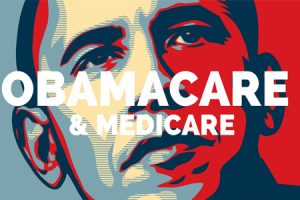WASHINGTON DC, October 13, 2009, 3:25pm EST — Minutes ago, the U.S. Senate Finance Committee approved the latest in a series of Congressional healthcare bills aimed at ultimately fulfilling Barak Obama’s fierce and public determination to institute a national health care plan by year’s end.
Today’s bill passed on strict partisan lines with the exception of Senator Olympia Snowe (R-Maine), a Senate Finance Committee who refused to promise further pro-healthcare plan votes in the future. The current bill does not include Mr. Obama’s government-run healthcare proposal, but it is an integral component to its inclusion.
With the Senate requiring more than a 2/3 vote to approve the bill, and the current Senate mix comprised of 60 Democrats and 40 Republicans, Senator Snowe’s cross-over vote was, and will be, critical to the Democrats’ charge to create a government-run healthcare system in the U.S.
Of consistently expressed public concern to Catholic Bishops, Catholic and pro-life physicians and healthcare workers, and Catholic taxpayers are issues in the proposed and passed healthcare bills which relate to abortion, contraceptives and the inclusion of a conscience clause.
Additional Catholic concerns relate to the compromised or inhibited exercise of the principle of subsidiarity, whereby the person or entity closest to a situation or problem is the best one to resolve it. Further concerns include the nearly $900 million estimated initial price tag, the curtailing or elimination of existing healthcare options, and the ultimate curtailing of freedoms guaranteed in the U.S. Constitution.
According to Reuter’s, the latest Senate Finance Committee healthcare bill will follow expected subsequent steps outlined below as it works its way, with others, through both houses of the Congress:
- Senate Democrati leader Harry Reid and a handful of fellow Democrats (including Finance Committee chairman Max Baucus, new health panel Chairman Tom Harkin, and Senator Chris Dobb) are expected to enter closed-door talks to merge the signed bill with one approved by the Senate Health Committee earlier this year.
- The biggest decision will be whether to include a government-run “public” insurance option backed by Obama and congressional liberals. The Finance bill does not include it and three Democrats, including Baucus, voted against it in committee. The Health panel’s bill does include it. Reid also must navigate competing views on the level of government subsidies to help individuals buy insurance and a proposed requirement that employers offer health coverage to employees.
- Reid’s goal will be to find a spot where he can placate liberal Democrats without driving off moderates — all in hopes of holding together the Democrats’ 60-vote majority in the 100-member U.S. Senate. That is the number needed to overcome Republican procedural hurdles. “In the end, it’s about finding a proposal that can get 60 votes,” said Reid spokesman Jim Manley.
- Once Reid reaches a compromise, the measure will be submitted to the Congressional Budget Office for another estimate of costs and eventually moved to the Senate floor for debate, perhaps later this month.
- Democratic leaders in the House of Representatives also are working to merge three separate healthcare bills passed by House committees (not by the full House), and submitted a version last week to congressional budget analysts for cost estimates. Their goal is to move a bill to the floor in the next few weeks.
- If the Senate and House each pass a healthcare overhaul, a conference committee composed of members from each chamber will be appointed to negotiate the differences and combine the two measures. The public insurance option is certain to be an issue there as well — all three House bills include it.
- Once the conference committee settles on a single bill, the House and Senate vote again on the revised measure. If approved, it will be sent to Obama for his signature or veto. Obama has set a goal of the end of the year for final action.
(Bullet points attributed to Reuters reporting by John Whitesides; Editing by Doina Chiacu)
For more information on the latest development in establishing a U.S. nationalized healthcare system, please find some interesting articles below:


